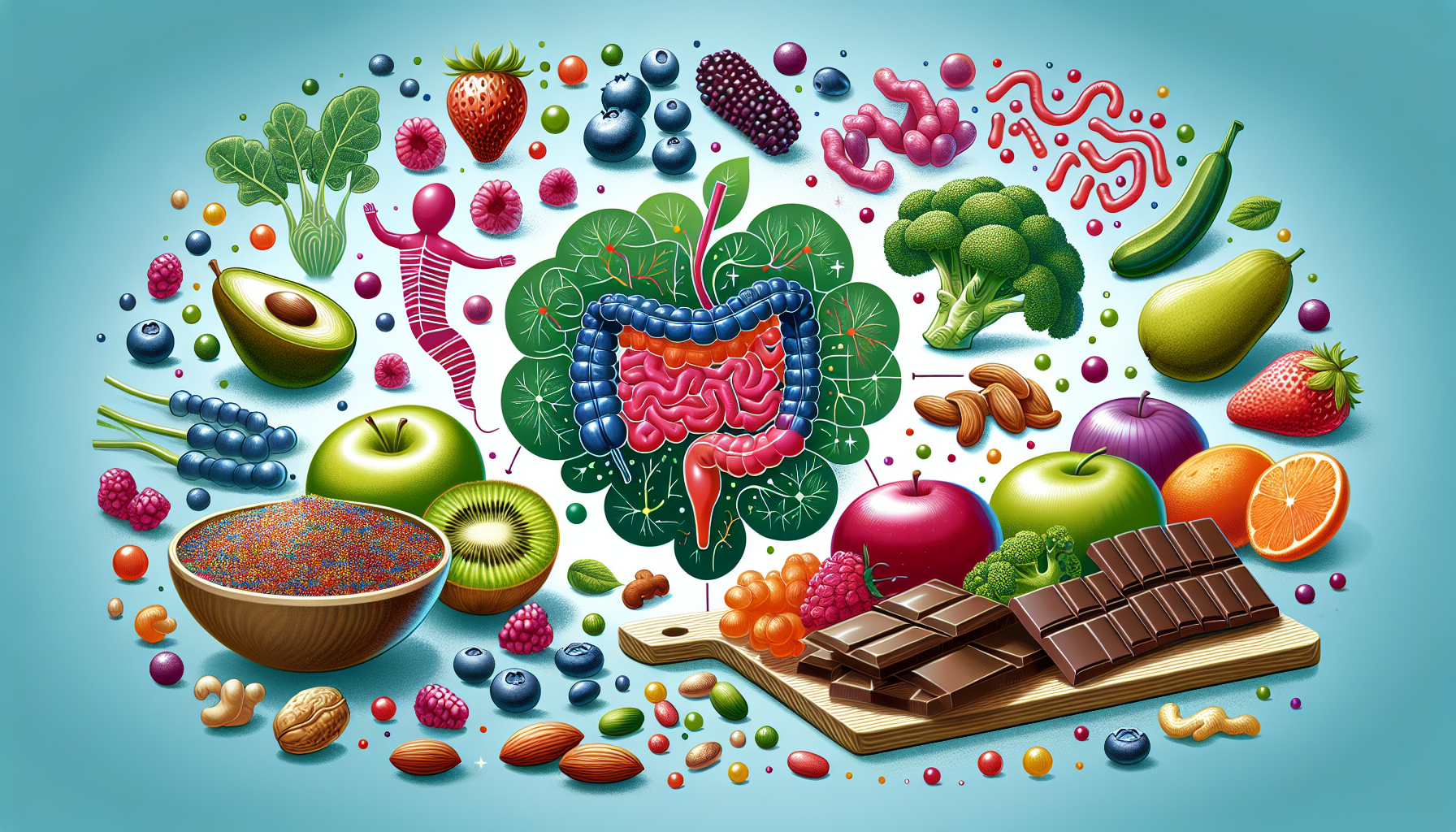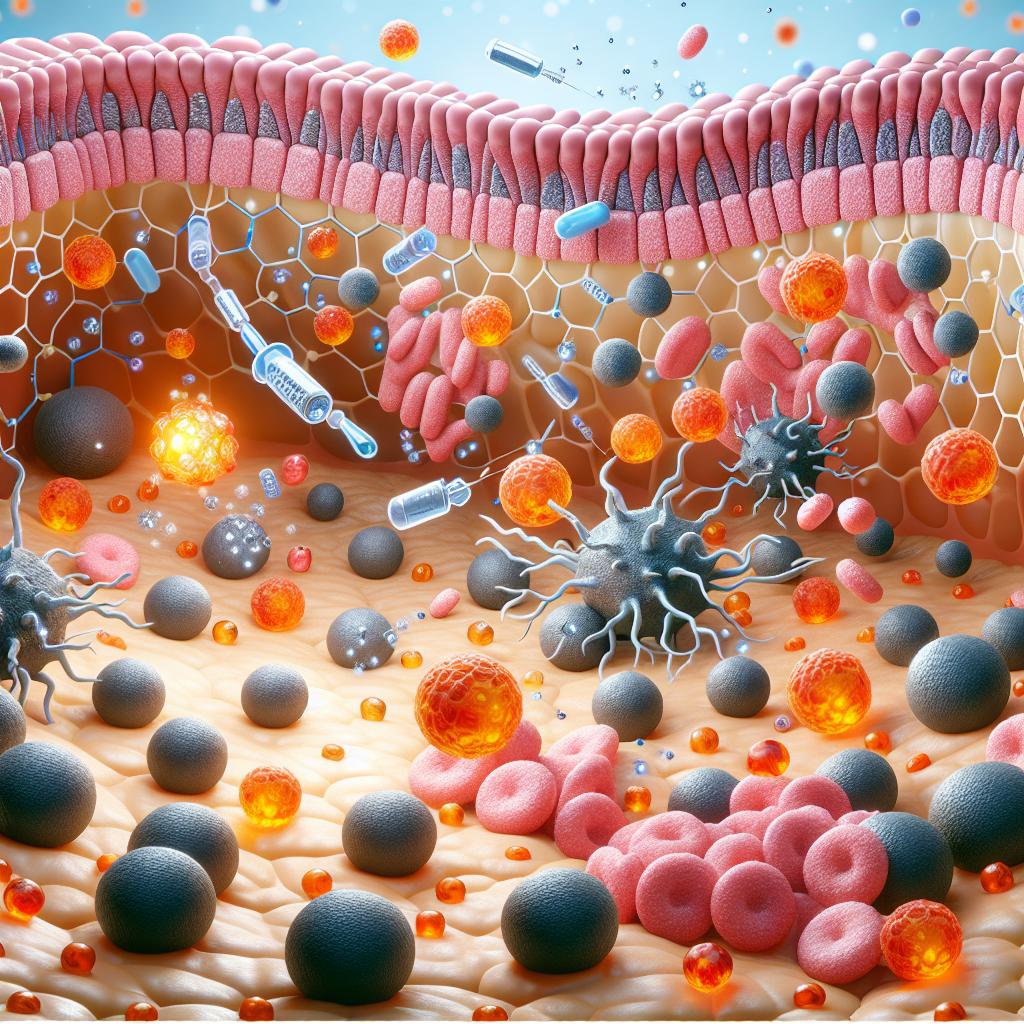Antioxidants are a crucial component in the maintenance of overall health, playing a significant role in gut health, which is foundational to our body’s well-being. The intricate relationship between antioxidants and the digestive system is a burgeoning field of research, shedding light on how these compounds can help maintain a healthy gut flora and barrier, protect against oxidative stress, and bolster our immune system.
The Role of Antioxidants in the Body
Antioxidants are substances that can prevent or slow damage to cells caused by free radicals, which are unstable molecules that the body produces as a reaction to environmental and other pressures. They have the potential to harm cells, proteins, and DNA by altering their chemical structure.
The gut, being one of the largest interfaces between the external environment and the internal milieu of the human body, is particularly susceptible to oxidative stress due to the constant exposure to food-derived, microbial, and environmental oxidant molecules. To counteract these potential threats, the body leverages antioxidants, which are either produced endogenously or introduced exogenously through diet.
Antioxidants and Gut Health
The gastrointestinal tract is home to trillions of microbes that make up the gut microbiota. This complex community plays a vital role in nutrient absorption, metabolism, and immune function. Antioxidants can influence gut health in several ways:
Protecting Gut Microbiota
Antioxidants have been found to have a protective effect on the gut microbiota, helping to maintain its diversity and functionality. By neutralizing free radicals, antioxidants can prevent the damage to both the gut lining and the microbial cells within the gut.
Strengthening the Gut Barrier
The gut barrier is our first line of defense against pathogens and toxins. Antioxidants such as glutathione and vitamins C and E help to reinforce this barrier, keeping harmful substances from entering the bloodstream.
Modulating Inflammation
Inflammation is a natural response to injury or infection, but chronic inflammation can lead to disease. Antioxidants like polyphenols can modulate inflammatory responses within the gut by down-regulating pro-inflammatory cytokines and up-regulating anti-inflammatory ones.
Enhancing Immune Function
The gut-associated lymphoid tissue (GALT) is the largest immune organ in the body. Antioxidants can enhance its function, thus improving the body’s ability to fend off pathogens.
For a deeper understanding of the role of antioxidants in our system, consider exploring Digestive Health, which provides comprehensive insights into maintaining a healthy digestive system.
Sources of Antioxidants
Antioxidants are plentiful in fruits, vegetables, nuts, and whole grains. Some of the best dietary sources include berries, green leafy vegetables, nuts like almonds and walnuts, and beverages such as green tea and coffee. It’s essential to consume a variety of these foods to ensure a broad spectrum of antioxidants and other nutrients.
Scientific Evidence on Antioxidants and Gut Health
Research has shown that diets rich in antioxidants can positively affect gut health. For example, a study published in the journal "Nutrients" found that polyphenols from berries can alter the gut microbiota and improve gut health. Another study in the "Journal of Agricultural and Food Chemistry" indicated that green tea polyphenols can promote the growth of beneficial gut bacteria.
For further reading on the benefits of specific antioxidants, the following external resources offer valuable insights:
- A comprehensive review on the effects of polyphenols on the gut microbiota published in "Nutrients".
- The impact of dietary antioxidants on the gut barrier function, as discussed in "Free Radical Biology and Medicine".
Linking Antioxidants with Other Health Aspects
The antioxidants’ beneficial effects extend beyond gut health. They are implicated in the prevention of various chronic diseases, including cardiovascular diseases and certain cancers. A healthy gut is also linked to improved Brain Health, as the gut-brain axis is an area of extensive research connecting gut microbiota composition with cognitive functions and mental well-being.
Practical Tips for Boosting Antioxidant Intake
- Diversify Your Diet: Incorporate a rainbow of fruits and vegetables to get different types of antioxidants.
- Opt for Whole Foods: They provide not only antioxidants but also fiber, which is beneficial for gut health.
- Mind Your Preparation: Cooking methods like steaming and blanching can help preserve antioxidant content.
- Consider Supplements: In some cases, antioxidant supplements may be beneficial, but it’s best to consult with a healthcare provider before starting any new supplementation.
For those interested in the interplay between diet and digestive health, the article Dietary Fiber and Digestive Health: The Undeniable Link offers an in-depth look at how fiber contributes to a healthy gut.
Antioxidants in Digestive Disorders
Individuals with digestive disorders may have altered antioxidant status. For example, those with inflammatory bowel disease (IBD) often have lower levels of certain antioxidants. Therefore, maintaining an antioxidant-rich diet may be particularly important for managing such conditions.
Conclusion
Antioxidants play an essential role in maintaining gut health by protecting the gut microbiota, strengthening the gut barrier, modulating inflammation, and enhancing immune function. A diet rich in antioxidants, coupled with a healthy lifestyle, can contribute significantly to gastrointestinal well-being and overall health.
For more targeted information on managing digestive health conditions, the article Strategies for Managing IBS and Promoting Digestive Health provides valuable strategies and insights.
Embracing a diet rich in antioxidants is a powerful way to support your gut health and, by extension, your overall well-being. Remember to consult healthcare professionals when considering changes to your diet or lifestyle, especially if you have pre-existing health conditions.



